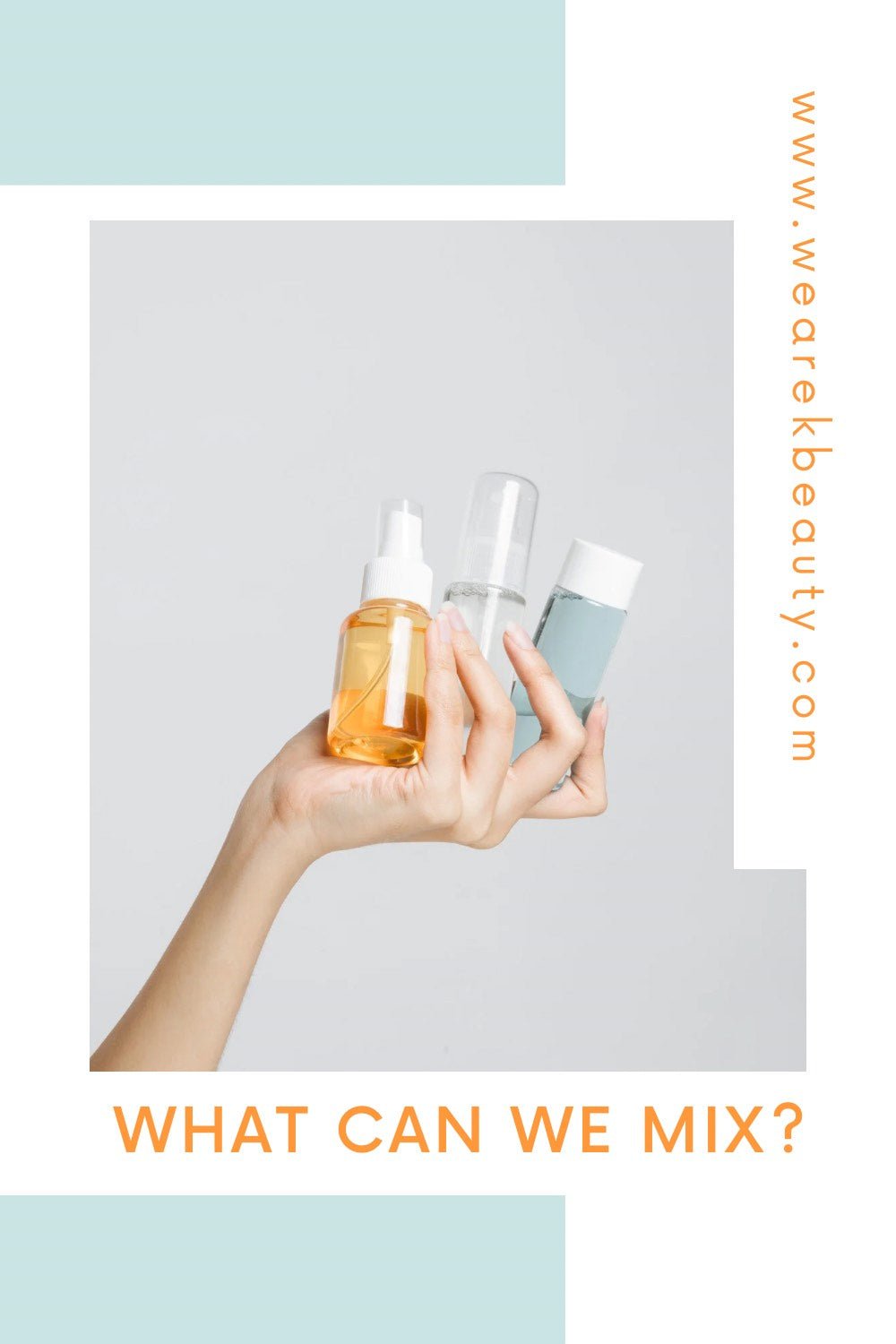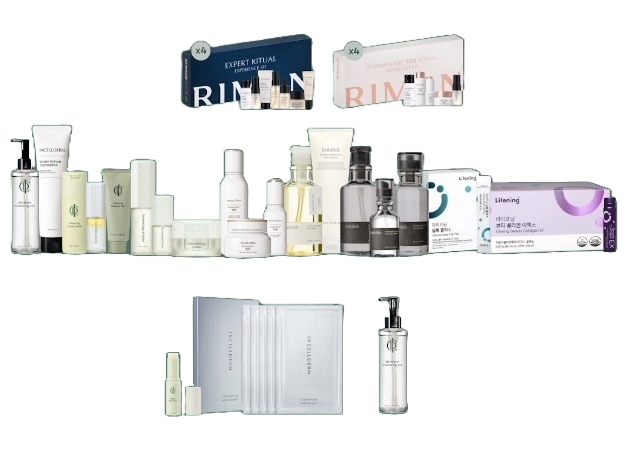
Skincare Combos That Don’t Mix — and What to Do Instead
Share
✨ Skincare Combos That Don’t Mix — and What to Do Instead
Your no-drama guide to layering like a pro
Here’s the truth: skincare can feel like skincare school. One minute you’re layering your favorite new serum, the next… your skin’s throwing a full-blown tantrum (cue the redness, stinging, and “Why did I do this to myself?” panic).
If you’ve ever asked, “What skincare ingredients shouldn’t be mixed?” —you’re not alone. It’s one of the most searched skincare questions out there, and for good reason.
But don’t stress—we’re breaking it down, with expert advice and science to back it up. Because when you know better, you glow better.
🚫 The Skincare Combos Derms Wish You’d Stop Layering
Not all ingredients vibe together. Some just need a little space (like your favorite ex), while others are straight-up toxic when combined.
Let’s get into the most common “no-no” combos, and what to do instead to keep your skin barrier calm, collected, and glowing.
1. Retinol + AHAs/BHAs (Like Glycolic or Salicylic Acid)
Why it’s messy:
These are all exfoliants. Together, they’re like hosting a party with three DJs—chaos. You’ll risk irritation, peeling, and major barrier damage.
🩺 “Layering these can lead to inflammation, dryness, and even dermatitis,” says dermatologist Dr. Hadley King in Allure.
A 2020 study in the Journal of Clinical and Aesthetic Dermatology backs this, showing increased transepidermal water loss when retinoids and acids are used together.
Smart swap:
Alternate nights. Use your retinol one night, your acids the next. Your skin barrier will breathe a sigh of relief.
2. Vitamin C + Niacinamide
(Especially in strong, unbuffered forms)
Why it’s risky:
The old-school thinking said these two cancel each other out. Newer studies? Not quite—but when used in high concentrations or unstable forms, they can cause flushing, sensitivity, or just... meh results.
💬 “L-ascorbic acid (Vitamin C) can destabilize when mixed with high-dose niacinamide unless precisely formulated,” explains cosmetic chemist Michelle Wong (@labmuffinbeautyscience).
Healthline and the Journal of Cosmetic Dermatology both note this pairing can work—but formulation matters.
What works:
Vitamin C in the morning to fight free radicals, niacinamide at night to balance. Think of them like skincare soulmates... in a long-distance relationship.
3. Vitamin C + Retinol
Why they clash:
They need different pH environments to be effective. Vitamin C (especially pure L-ascorbic acid) is acidic. Retinol likes it more neutral.
🧬 “They’re powerful—but too much for most skin types to handle at once,” says Dr. Shari Marchbein, board-certified derm, in Glamour.
Better idea:
Vitamin C for your morning glow. Retinol at night for renewal. Two stars, different stages.
4. Benzoyl Peroxide + Retinol
Why it backfires:
These two are acne fighters, yes—but when used together? They deactivate each other. And the dryness? It’s next-level.
🩺 “Benzoyl peroxide oxidizes retinol, reducing its efficacy and increasing irritation,” says Dr. Joshua Zeichner, Mount Sinai Hospital.
The fix:
Use benzoyl peroxide in the AM and retinol in the PM. Or alternate nights if your skin’s feeling fragile. Moisturize like your glow depends on it—because it does.
5. AHAs/BHAs + Vitamin C
Why it’s too much:
This combo can overload your skin with acidity, leaving you with stinging, flaking, and an angry barrier.
Glow smarter:
Use your exfoliants at night and vitamin C in the morning. Think of it as letting each ingredient shine solo.
6. Niacinamide + AHAs/BHAs
Why they butt heads:
Niacinamide performs best at a higher pH. Acids? Not so much. Together, they can reduce each other’s impact—or cause redness in sensitive skin.
🧪 Research in the Journal of Dermatological Treatment confirms that combining low-pH acids with niacinamide can compromise ingredient efficacy and increase flushing.
Try this instead:
Use your acid toner, wait 20–30 minutes, then follow with niacinamide. Or use them on alternate days. No drama, just glow.
✅ Power Couples That Actually Work
Now for the good news: there are ingredient pairings that make each other better. These are the couples we love, respect, and root for:
| 💘 Dream Team | 💡 Why It Works |
|---|---|
| Niacinamide + Hyaluronic Acid | Brightens + deeply hydrates |
| Retinol + Peptides | Anti-aging meets barrier support |
| Vitamin C + Ferulic Acid | Stabilizes + boosts antioxidant power |
| Ceramides + Anything | Repairs barrier, boosts every routine |
| Salicylic Acid + Niacinamide | Clears breakouts + calms inflammation |
🧠 PSA: Before You Start Cocktailing...
Some final love notes from us (and the derms):
-
Always patch test before diving in
-
SPF is your skincare insurance policy—every. single. day.
-
Don't layer everything just because it's trendy
-
Hydration and barrier care > over-treatment
👩⚕️ The Glow-Smart Takeaway
Skincare isn’t a test you pass by doing the most. It’s about doing what’s right for your skin. When you understand what ingredients don’t mix, you’ll avoid the redness, the flaking, the “what did I just do?” panic.
So before you cocktail your actives like it’s happy hour, ask:
🧴 “Is this glow science… or glow sabotage?”
✨ Want Products That Work With Your Skin?
We’ve curated skincare that’s smart, balanced, and barrier-friendly—formulated to deliver glow without the irritation.
🛍 Shop the edit:
Use planner username wekbeauty when ordering from RIMAN corporate to stay connected to our store and unlock exclusive perks.

